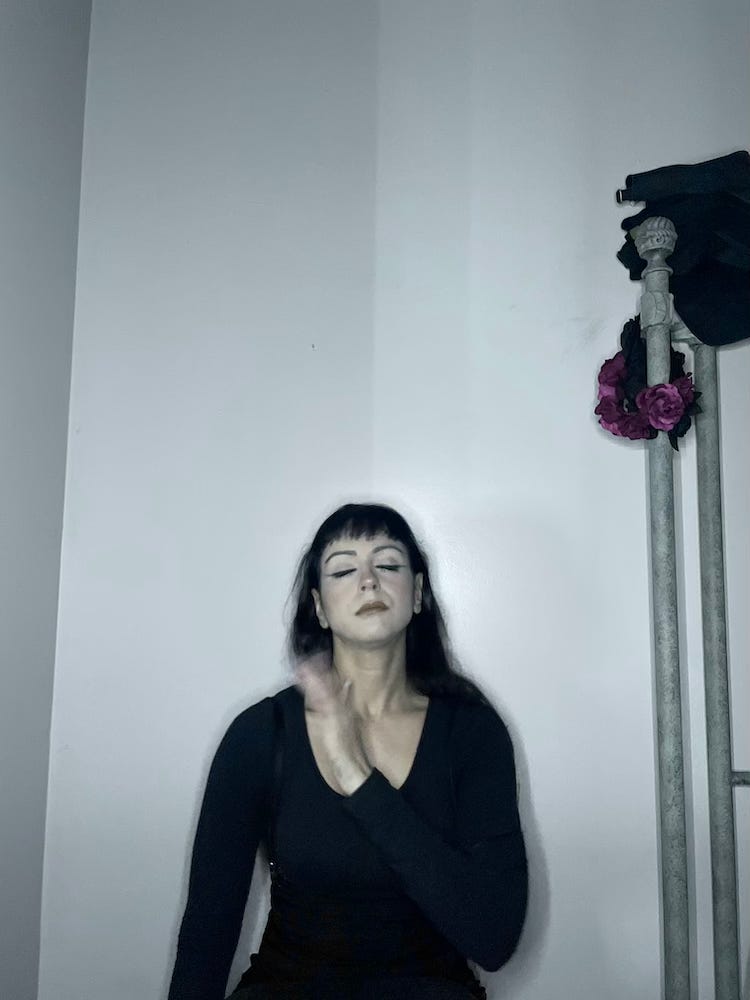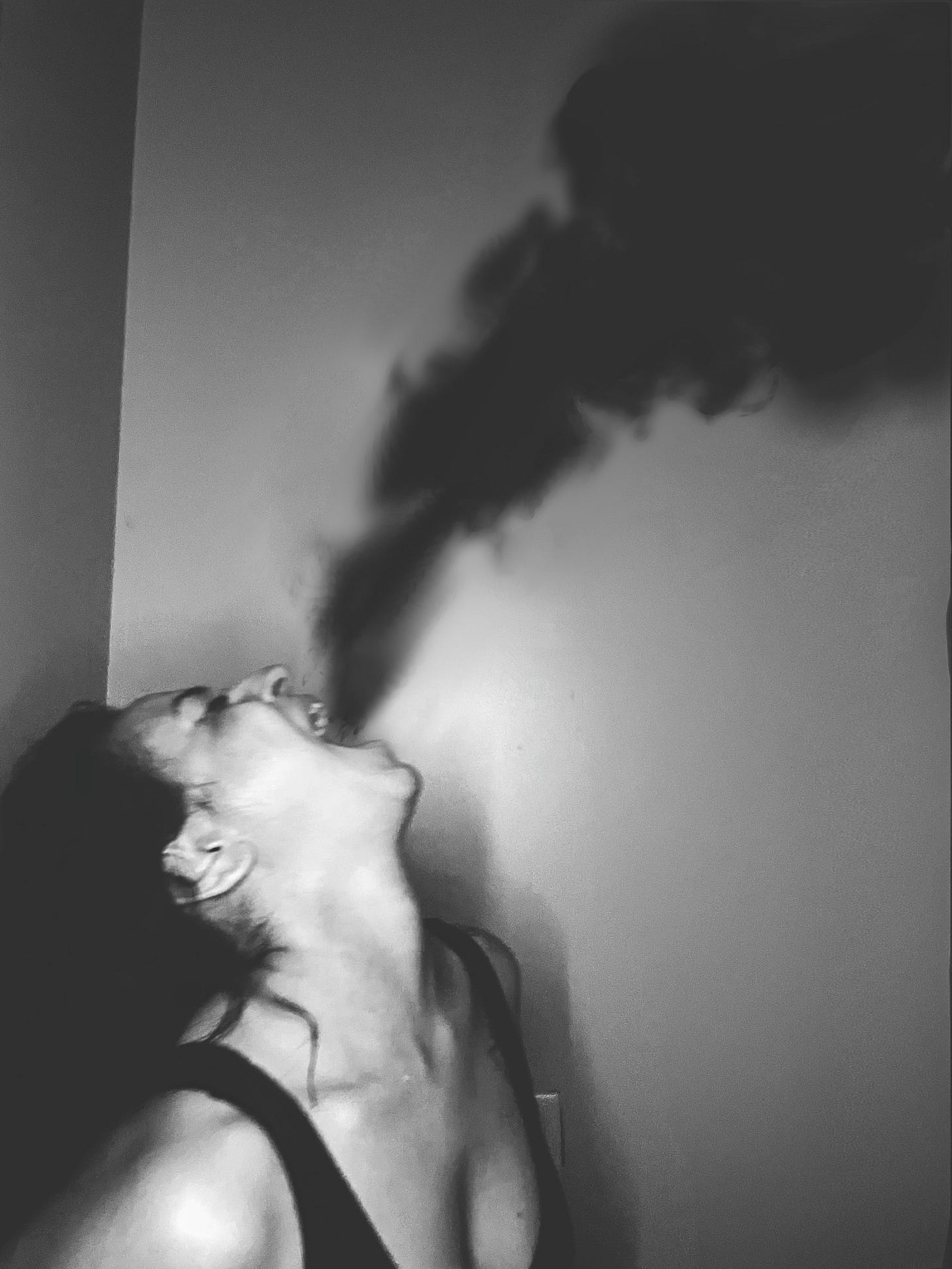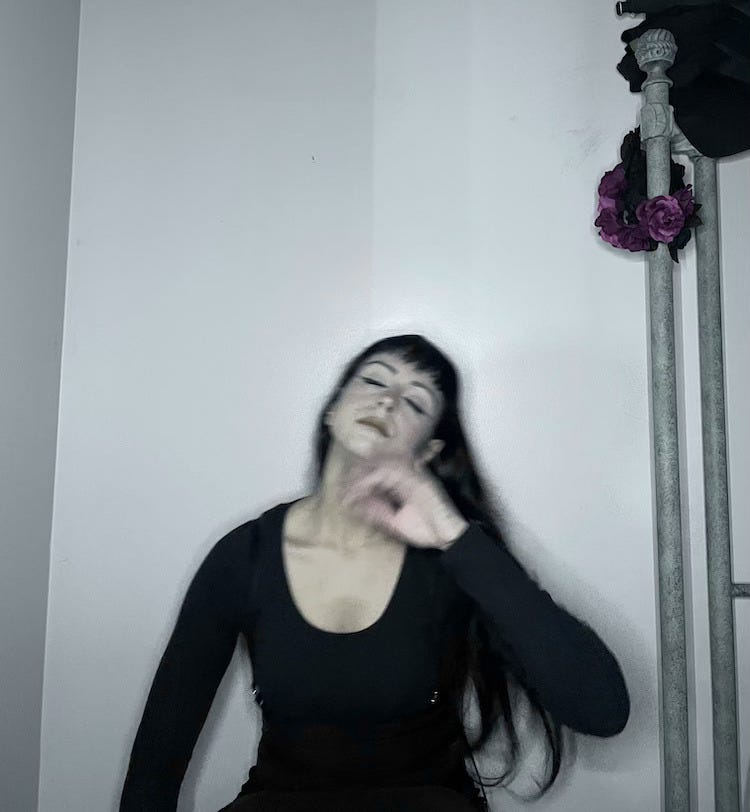Back in March I had a major revelation come through - that I am a highly sensitive person (HSP). I came across this term before, but I don’t think I was ready to embrace it. To someone who isn’t ready, it feels like a burden - a curse - an intense part of you that you don’t want to spend too much time looking at let alone talking about with other people. This is how I used to feel about my larger than life emotions and how I experienced them. In my rejection I struggled with self-acceptance, I also felt fear because they were always so big. This made life extra hard because of the spiritual principle ‘as within so without,’ me believing everything I felt internally was worth rejecting had me seeing that same rejection in all my external interactions. Now I’m getting the hang of understanding that it’s the most beautiful part of me, and my external reality is changing. I wanted to share all of this with you in case you are struggling with the same thing - you may be a HSP.
What is a highly sensitive person?
According to Elaine Aron, HSP pioneer since the 90s, it’s a genetic personality trait (not a diagnosis, or disease, or behavioral problem) which affects a person’s feelings and how they process information. Specific criteria include being acutely aware of your environment, carefully taking in details including subtle cues others may not notice, becoming overstimulated as a result and also experiencing deep emotional empathy and high emotional reactivity (meaning a HSP feels quickly and intensely). There is a test on Aron’s website that you can take to find out if you are a HSP.
In March after a week long, I’m talking every single day for a week, emotional hangover, I cried some more and wondered why all my life I felt this way. Why did my emotions make me feel like I couldn’t breathe - even when something moderately upsetting happened - and how come no one else around me could relate? What made me different? That night some tarot cards led me to a website and then I found Dialectical Behavioral Therapy (DBT) for HSPs by Emma Lauer and started working with it immediately because it resonated deeply. I think I stayed up that night until like 2am because I couldn’t stop reading - every word she wrote described me. I remember feeling like the universe led me to the book because my karma was ripe, I had evolved enough to be ready to face this part of myself. The workbook mentioned Elaine Aron in the intro, and that she estimates that 20 percent of the general population fall under her definition of a HSP. The workbook aims to teach you how to wield it like the superpower it is, instead of hating yourself for it.
Aron also made a documentary, Sensitive: The Untold Story with Alanis Morrisette, who is a HSP too. It suddenly made sense why her music was what it was. “Cause the joke that you laid in the bed that was me and I’m not gonna fade as soon as you close your eyes” or “I don’t wanna be your mother I didn’t carry you in my womb for 9 months.” There are probably even deeper lyrics of hers but everyone knows that she made a career out of her intense feelings, and her skill in conveying them through songwriting would not be as present if she did not feel so deeply due to having this personality trait.
In the documentary, Aron explains how extensive research has shown that HSPs possess 4 major traits that non-HSPs don’t, which form the DOES acronym:
Depth of processing: Reflecting on info more deeply or elaborately and since it’s not always conscious, it is more like an intuition - you see, feel, perceive and process things as if you have a super awareness and that makes it a balancing act to be around others because you can easily get overstimulated
(easily) Overstimulated: Sounds and lighting and other people can feel overwhelming, so you need a lot of alone time, this can be a disadvantage to the trait because too much info can be coming in at once when you’re interacting, too much sight, too much sound, etc.
(strong) Emotional responses/empathy: Reacting very emotionally or empathetically to your surroundings and what’s going on so that you cry or anger or become fervorous or passionate very easily because you’re able to process info more thoroughly and can understand as you interact what others are feeling on a very deep level
Sensitivity to subtleties in the environment: Understanding the subtle cues in everything around you, taking it all in and combining it with all the information you’ve ever noticed your whole life - and in turn this makes it easy for you to come up with unique, new ideas, which is why when HSPs have an experience they can produce a creative product from it, i.e. this is where their intense creativity comes from like Alanis’s - research has also shown that HSPs have more activity in the ‘insula’ part of the brain (which is our seat of consciousness and brings together all inner and outer experiences) than non-HSPs, which is why you are more aware of others and the subtleties in your environment because you are more engaged with the insula
Aron also discusses how if your parents never took care of their own high sensitivity then they wouldn’t know you possess it too or got it from them, and wouldn’t give you the grace needed as a child to honor every feeling you have. Thus if you were exposed to Adverse Childhood Experiences (you can take the ACEs quiz here) as a HSP child, you were more likely to develop a depression because you were affected by experiences more deeply than non-HSPs (this is a concept known as ‘differential susceptibility sensitivity’). Conversely if you had a decent childhood, you were likely to have benefited from it more deeply than a non-HSP child. All this to say it really matters and could make a world of difference the type of care you received as a kid if you are a HSP.
My own experiences
I chose the above photo for the cover of this article because it depicts a time before I found out I was a HSP and so was reeling that day from another experience, needing to self-express through creativity - emotive photography in this case. In the photo I was telling my emotions to “please stop, please go away, I’m suffering too much.” Other things I used to tell myself on days like this was I am a mess, I am not emotionally stable enough to be in a relationship or to work and another day wasted where I didn’t get anything done because my emotions got in the way. Most of this came from internal rejection but none of us are born with internal rejection, the world tells us to shut down when it comes to our emotions and we grow up like this internally as a result. Our caretakers are also brainwashed so they reinforce it, unless they’ve evolved enough to not reinforce it and uplift it instead.
Rejecting my emotions was also why it was always hard to find a way to cope healthily because I was invalidating them in the first place. Some things I do differently now is save my tissues in my pocket for like 24 hours to honor my tears and from the DBT HSP workbook learning how to engage in acts of self-compassion, radical acceptance, mindfulness, expanding my window of tolerance, and other emotional tools when I’m experiencing intense emotions. I have a whole Self-care folder in my Notes app now in case of an emotional emergency. But the most important thing I do differently is give myself permission to take a full day off when I need it, and it feels good because it’s me validating what I feel where in the past I’d try to force myself through a day thereby invalidating myself. I’ll go to a park or nature, I’ve kept a running list of places that can hold me when I feel this way. And sometimes I’ll use art as a release. It’s like an entire exhibition comes into my mind and then I perform it, only it’s real and exactly how I feel inside. The below are some of what I have created to cope.
You can see the full photo shoots in the articles Shadow and JHRI.
I still have days where I can’t and don’t want to do anything, just needing to sit in silence with everything and let it be what it is because it’s so overwhelming, I think that just comes with the territory. And this doesn’t just happen when I experience events, I will also just wake up like this sometimes, but it’s more than just having a bad day or waking up on the wrong side - I will be disoriented and not knowing what to wear, not knowing what to do for the day even though I already had a plan, feeling like anywhere I go or anything I do is not enough - it’s like I can’t exist for 24 hours, it’s hard to explain. And it feels like my inner compass has gone off the grid temporarily, somehow. I used to be so hard on myself feeling afraid thinking this was all my fault and I had to fix it, but really I just had to let myself feel what I was feeling for the day, let it pass through me and wait it out instead of fighting it.
This reminds me of the symbol for Cancer, being able to have a crab shell when I need it helps because otherwise I don’t feel like I can survive the outside world. I love this interpretation from The Scarlet Sage where she says “Crab’s shell, like a bathysphere, is a strong protective container that allows it to descend into the deep emotional waters of the unconscious … strong enough to protect Crab and comfortable enough that they can freely do their work [a metaphor for processing feelings].”
Some examples of how I’ve experienced the DOES traits:
Staying at my altar for 2+ hours with a notebook going over an emotional experience and this process can last for a few days
Requesting a 1-4pm texting boundary so that texts don’t come through for a while because texting for too long gets me super frustrated and upset
Experiencing a Zoom bombing where these kids were making homophobic and racist slurs and leaving hysterically crying because I could feel every single person’s pain who had ever been a victim of racism or even died as a result and every single person’s pain who had ever been a victim of homophobia or even died as a result
Crying when I am touched by a commercial, words someone says or a song and seeing the beauty in every thing and person around me
Overall I have learned that fearing and not accepting big emotions as a HSP means running from relationships and experiences, and obsessively going to others to have them tell you what you’re feeling instead of looking inside yourself. But it takes time to let yourself drift toward some semblance of relief, it takes time to accept your feelings just as they are knowing absolutely nothing is wrong with them or you because of the existence of them. Your tears are like literal diamonds falling from your eyes all around you they’re treasures that carry important messages from your soul, you don’t know how sacred they are until you know, and then you can treat them as such. So if you’re reading this and think you’re a HSP or in general just struggle with your feelings give yourself some gentleness and time to come into yourself and this deep inner knowing.
I’m with you in I always thought it was bad to feel this deeply since I was a little girl - I thought feeling this deeply meant something was seriously wrong with me. I was also always shamed for it. Being able to see this day/milestone, where I have taken my power back through finding this out, that I could put a name and meaning to what I experience on an almost daily basis, has changed so much.
Jennifer Diane is a writer, artist and intuitive based out of New Jersey. Healing with the Occult is a publication that shares hidden, transformative knowledge.




